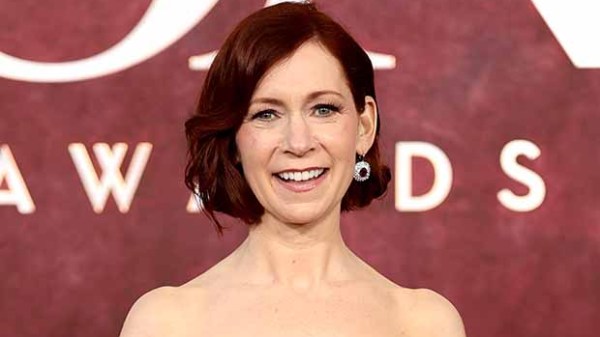
The Unscripted Scar: Carrie Preston and the Canvas of Human Vulnerability
In the dazzling kaleidoscope of Hollywood, where polished veneers and meticulously crafted images often dominate, the human element occasionally breaks through with a raw, undeniable truth. When actress Carrie Preston, known for her distinctive roles from the quirky brilliance of Elsbeth Tascioni to the fierce loyalty of Arlene Fowler, revealed she had undergone surgery to remove skin cancer from her cheek, it wasn't just a celebrity health update. It was a poignant, unscripted scene that illuminated the universal tapestry of vulnerability, resilience, and the fragile canvas of the human body.
Preston's decision to share her journey, complete with images of the aftermath, pulled back the velvet curtain of celebrity, exposing not just a personal struggle but a shared human reality. For an actress, whose face is not merely a feature but an instrument, a vessel for emotion and character, a visible scar on the cheek carries a particular weight. It’s a testament to the unyielding hand of biology, a reminder that even those who inhabit the most glamorous worlds are subject to the same biological truths as anyone else. Her revelation was a stark counterpoint to the carefully curated perfection often presented to the public; it was an honest admission that beneath the makeup and the bright lights, there exists the same susceptibility to illness that touches every life.
The cheek, that prominent, often sun-kissed area of the face, becomes a potent symbol in her narrative. It’s the part of us most exposed to the elements, a silent witness to years of laughter, tears, and sun-drenched moments. For many, skin cancer, often a quiet intruder, begins its work unnoticed, a tiny anomaly dismissed until it demands attention. Preston’s story underscores this insidious truth: that the very skin we inhabit, our body's largest organ and first line of defense, requires constant vigilance. Her experience serves as an urgent, visual reminder of the ubiquitous threat of skin cancer and the critical importance of early detection and protection.
Yet, beyond the cautionary tale, lies a profound illustration of human courage. In a world that often prizes an unblemished facade, Preston chose vulnerability. By showing the raw aftermath of surgery, the stitches, the incision, she transformed a private health battle into a public lesson. This act of sharing is a testament to her strength, a willingness to stand unvarnished and communicate a vital message: that health transcends superficial aesthetics. The resulting scar, rather than detracting, adds a layer of depth and authenticity to her person, a roadmap of a battle fought and won, a silent witness to her resilience.
Her story becomes a mirror, reflecting the fears and anxieties that many face when confronted with a medical diagnosis, particularly one involving cancer. It reminds us that regardless of fame or fortune, the journey through illness is deeply personal, often isolating, and profoundly human. But by sharing it, Preston transforms that isolation into solidarity, offering solace and practical encouragement to countless others navigating similar paths. She transforms a personal ordeal into a public service announcement, imbued with empathy and real-world weight.
In the final act of this unscripted drama, the scar on Carrie Preston’s cheek transcends its physical reality. It becomes an emblem – not just of a disease confronted, but of a spirit unfazed, a voice empowered, and a message amplified. It speaks to the shared human condition, where vulnerability and strength intertwine, and where the most profound truths are often revealed in the most unvarnished moments. Her journey reminds us that life, like art, often gains its deepest meaning not from flawless perfection, but from the raw, beautiful, and sometimes scarred landscape of our shared humanity.
